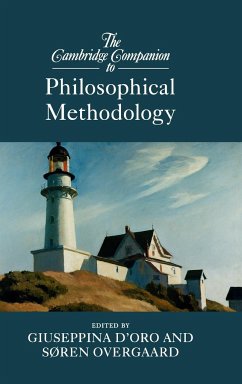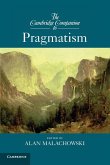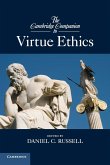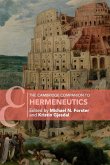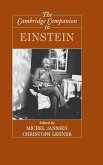The Cambridge Companion to Philosophical Methodology
Herausgeber: D'Oro, Giuseppina; Overgaard, Søren
The Cambridge Companion to Philosophical Methodology
Herausgeber: D'Oro, Giuseppina; Overgaard, Søren
- Gebundenes Buch
- Merkliste
- Auf die Merkliste
- Bewerten Bewerten
- Teilen
- Produkt teilen
- Produkterinnerung
- Produkterinnerung
The Cambridge Companion to Philosophical Methodology provides clear and comprehensive coverage of the main methodological debates and approaches within philosophy.
Andere Kunden interessierten sich auch für
![The Cambridge Companion to Jung The Cambridge Companion to Jung]() Polly Young-Eisendrath / Terence Dawson (eds.)The Cambridge Companion to Jung105,99 €
Polly Young-Eisendrath / Terence Dawson (eds.)The Cambridge Companion to Jung105,99 €![The Cambridge Companion to Common-Sense Philosophy The Cambridge Companion to Common-Sense Philosophy]() The Cambridge Companion to Common-Sense Philosophy111,99 €
The Cambridge Companion to Common-Sense Philosophy111,99 €![The Cambridge Companion to Pragmatism The Cambridge Companion to Pragmatism]() The Cambridge Companion to Pragmatism38,99 €
The Cambridge Companion to Pragmatism38,99 €![The Cambridge Companion to Virtue Ethics The Cambridge Companion to Virtue Ethics]() The Cambridge Companion to Virtue Ethics38,99 €
The Cambridge Companion to Virtue Ethics38,99 €![The Cambridge Companion to Virtue Ethics The Cambridge Companion to Virtue Ethics]() The Cambridge Companion to Virtue Ethics111,99 €
The Cambridge Companion to Virtue Ethics111,99 €![The Cambridge Companion to Hermeneutics The Cambridge Companion to Hermeneutics]() The Cambridge Companion to Hermeneutics34,99 €
The Cambridge Companion to Hermeneutics34,99 €![The Cambridge Companion to Einstein The Cambridge Companion to Einstein]() The Cambridge Companion to Einstein118,99 €
The Cambridge Companion to Einstein118,99 €-
-
-
The Cambridge Companion to Philosophical Methodology provides clear and comprehensive coverage of the main methodological debates and approaches within philosophy.
Hinweis: Dieser Artikel kann nur an eine deutsche Lieferadresse ausgeliefert werden.
Hinweis: Dieser Artikel kann nur an eine deutsche Lieferadresse ausgeliefert werden.
Produktdetails
- Produktdetails
- Verlag: Cambridge University Press
- Seitenzahl: 486
- Erscheinungstermin: 21. September 2017
- Englisch
- Abmessung: 235mm x 157mm x 31mm
- Gewicht: 848g
- ISBN-13: 9781107121522
- ISBN-10: 1107121523
- Artikelnr.: 48136030
- Herstellerkennzeichnung
- Libri GmbH
- Europaallee 1
- 36244 Bad Hersfeld
- gpsr@libri.de
- Verlag: Cambridge University Press
- Seitenzahl: 486
- Erscheinungstermin: 21. September 2017
- Englisch
- Abmessung: 235mm x 157mm x 31mm
- Gewicht: 848g
- ISBN-13: 9781107121522
- ISBN-10: 1107121523
- Artikelnr.: 48136030
- Herstellerkennzeichnung
- Libri GmbH
- Europaallee 1
- 36244 Bad Hersfeld
- gpsr@libri.de
Introduction Søren Overgaard and Giuseppina D'Oro; Part I. Visions Of
Philosophy: 1. Doing philosophy Alessandra Tanesini; 2. Philosophy as
rational systematization Nicholas Rescher; 3. Sense-making from a human
point of view Adrian Moore; 4. Disagreement in philosophy: an optimistic
perspective Herman Cappelen; Part II. Conceptual Analysis and the
Naturalistic Challenge: 5. Impure conceptual analysis Hans-Johann Glock; 6.
What can we do, when we do metaphysics? Amie L. Thomasson; 7. Armchair
metaphysics revisited: the three grades of involvement in conceptual
analysis Frank Jackson; 8. A naturalistic methodology Hilary Kornblith; 9.
What is negative experimental philosophy good for? Joanathan M. Weinberg;
Part III. Between Analysis and the Continent: 10. Life-changing
metaphysics: rational anthropology and its Kantian methodology Robert
Hanna; 11. Collingwood's idealist metaontology: between therapy and
armchair science Giuseppina D'oro; 12. Pragmatism and the limits of
metaphilosophy Robert B. Talisse; 13. Metaphysical quietism and everyday
life David Macarthur; 14. The metaphilosophy of the analytic-continental
divide: from history to hope Robert Piercey; Part IV. Continental
Perspectives: 15. Phenomenological method and the achievement of
recognition: who's been waiting for phenomenology? David R. Cerbone; 16.
Existentialist methodology and perspective: writing the first person Jack
Reynolds and Patrick Stokes; 17. Hermeneutics and the question of method
Kristin Gjesdal; 18. Critical theory's philosophy Fabian Freyenhagen; 19.
An extension of deconstructionist methodology Leonard R. Lawlor; 20.
Pathological experience: a challenge for transcendental constitution
theory? Jean-Luc Petit.
Philosophy: 1. Doing philosophy Alessandra Tanesini; 2. Philosophy as
rational systematization Nicholas Rescher; 3. Sense-making from a human
point of view Adrian Moore; 4. Disagreement in philosophy: an optimistic
perspective Herman Cappelen; Part II. Conceptual Analysis and the
Naturalistic Challenge: 5. Impure conceptual analysis Hans-Johann Glock; 6.
What can we do, when we do metaphysics? Amie L. Thomasson; 7. Armchair
metaphysics revisited: the three grades of involvement in conceptual
analysis Frank Jackson; 8. A naturalistic methodology Hilary Kornblith; 9.
What is negative experimental philosophy good for? Joanathan M. Weinberg;
Part III. Between Analysis and the Continent: 10. Life-changing
metaphysics: rational anthropology and its Kantian methodology Robert
Hanna; 11. Collingwood's idealist metaontology: between therapy and
armchair science Giuseppina D'oro; 12. Pragmatism and the limits of
metaphilosophy Robert B. Talisse; 13. Metaphysical quietism and everyday
life David Macarthur; 14. The metaphilosophy of the analytic-continental
divide: from history to hope Robert Piercey; Part IV. Continental
Perspectives: 15. Phenomenological method and the achievement of
recognition: who's been waiting for phenomenology? David R. Cerbone; 16.
Existentialist methodology and perspective: writing the first person Jack
Reynolds and Patrick Stokes; 17. Hermeneutics and the question of method
Kristin Gjesdal; 18. Critical theory's philosophy Fabian Freyenhagen; 19.
An extension of deconstructionist methodology Leonard R. Lawlor; 20.
Pathological experience: a challenge for transcendental constitution
theory? Jean-Luc Petit.
Introduction Søren Overgaard and Giuseppina D'Oro; Part I. Visions Of
Philosophy: 1. Doing philosophy Alessandra Tanesini; 2. Philosophy as
rational systematization Nicholas Rescher; 3. Sense-making from a human
point of view Adrian Moore; 4. Disagreement in philosophy: an optimistic
perspective Herman Cappelen; Part II. Conceptual Analysis and the
Naturalistic Challenge: 5. Impure conceptual analysis Hans-Johann Glock; 6.
What can we do, when we do metaphysics? Amie L. Thomasson; 7. Armchair
metaphysics revisited: the three grades of involvement in conceptual
analysis Frank Jackson; 8. A naturalistic methodology Hilary Kornblith; 9.
What is negative experimental philosophy good for? Joanathan M. Weinberg;
Part III. Between Analysis and the Continent: 10. Life-changing
metaphysics: rational anthropology and its Kantian methodology Robert
Hanna; 11. Collingwood's idealist metaontology: between therapy and
armchair science Giuseppina D'oro; 12. Pragmatism and the limits of
metaphilosophy Robert B. Talisse; 13. Metaphysical quietism and everyday
life David Macarthur; 14. The metaphilosophy of the analytic-continental
divide: from history to hope Robert Piercey; Part IV. Continental
Perspectives: 15. Phenomenological method and the achievement of
recognition: who's been waiting for phenomenology? David R. Cerbone; 16.
Existentialist methodology and perspective: writing the first person Jack
Reynolds and Patrick Stokes; 17. Hermeneutics and the question of method
Kristin Gjesdal; 18. Critical theory's philosophy Fabian Freyenhagen; 19.
An extension of deconstructionist methodology Leonard R. Lawlor; 20.
Pathological experience: a challenge for transcendental constitution
theory? Jean-Luc Petit.
Philosophy: 1. Doing philosophy Alessandra Tanesini; 2. Philosophy as
rational systematization Nicholas Rescher; 3. Sense-making from a human
point of view Adrian Moore; 4. Disagreement in philosophy: an optimistic
perspective Herman Cappelen; Part II. Conceptual Analysis and the
Naturalistic Challenge: 5. Impure conceptual analysis Hans-Johann Glock; 6.
What can we do, when we do metaphysics? Amie L. Thomasson; 7. Armchair
metaphysics revisited: the three grades of involvement in conceptual
analysis Frank Jackson; 8. A naturalistic methodology Hilary Kornblith; 9.
What is negative experimental philosophy good for? Joanathan M. Weinberg;
Part III. Between Analysis and the Continent: 10. Life-changing
metaphysics: rational anthropology and its Kantian methodology Robert
Hanna; 11. Collingwood's idealist metaontology: between therapy and
armchair science Giuseppina D'oro; 12. Pragmatism and the limits of
metaphilosophy Robert B. Talisse; 13. Metaphysical quietism and everyday
life David Macarthur; 14. The metaphilosophy of the analytic-continental
divide: from history to hope Robert Piercey; Part IV. Continental
Perspectives: 15. Phenomenological method and the achievement of
recognition: who's been waiting for phenomenology? David R. Cerbone; 16.
Existentialist methodology and perspective: writing the first person Jack
Reynolds and Patrick Stokes; 17. Hermeneutics and the question of method
Kristin Gjesdal; 18. Critical theory's philosophy Fabian Freyenhagen; 19.
An extension of deconstructionist methodology Leonard R. Lawlor; 20.
Pathological experience: a challenge for transcendental constitution
theory? Jean-Luc Petit.

